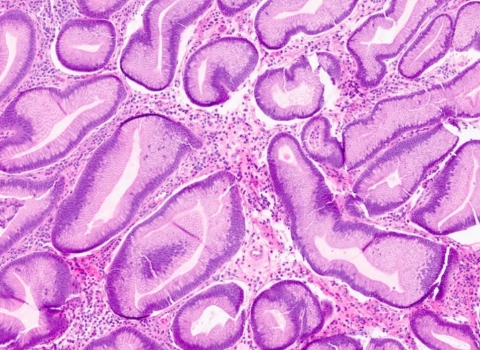Study led by Guy’s and St Thomas’ NHS Foundation Trust and King’s College London in the UK
NEW YORK and LONDON– February 1, 2021 – Paige, the global leader in AI-based diagnostic software in pathology, today announced a new study to evaluate how cancer diagnostic software can aid breast cancer assessments. Led by clinicians at Guy’s and St Thomas’ and King’s College London, the study will evaluate Paige Lymph Node, a research use only AI software system that can assist pathologists in identifying whether cancer in the breast has potentially spread to the lymphatic system. The study will assess the impact of software-assisted diagnostic techniques using historical lymph node cases from Guy’s Cancer Centre using real lymph node images from breast cancer patients, who have given consent for the images to be used in research.
Breast cancer is the most common cancer worldwide, with around 2.3 million women diagnosed and 685,000 deaths globally in 2020.[i] In the UK, there are around 56,000 new cases every year[ii] – or more than 150 new cases per day. When clinicians diagnose breast cancer, they will also check whether the cancer has spread beyond the breast tissue. For this step, expert pathologists will examine lymph node tissue to determine if the cancer has spread.
“Pathologists are central to the diagnosis of breast cancer, and their diagnoses strongly impact each patient’s treatment program,” said David Klimstra, M.D., Chief Medical Officer at Paige. “The pathology leaders at Guy’s and St Thomas’ and King’s College London are advancing the methods and science to help patients receive their most accurate diagnoses and to make life-changing decisions on treatments in most efficient way possible. Paige Lymph Node with this study will explore the potential for artificial intelligence to assist pathologists conducting the important diagnostic assessment of lymph node metastases, defining the risk of progression of breast cancer.”
Paige Lymph Node has been developed using advanced computational and AI techniques based on deep learning. When using Paige Lymph Node, the results or algorithm outputs are presented to the pathologists as part of a diagnostic workflow to help them identify and classify potential metastatic tissue. The AI technology is not designed to replace pathologist assessment, but instead to allow pathologists to work much more efficiently and could help draw their attention to cancers they might have missed.
“I am delighted to be involved in this exciting project examining whether this artificial intelligence technology can help in patient care by aiding the consultant pathologist in the accurate diagnosis of any islands of breast cancer that have spread to the lymph nodes,” said Sarah Pinder, FRC Path, lead specialist breast pathologist at Guy’s and St Thomas’. “This has the potential to improve both the accuracy and the speed of assessment of microscopic examination, with benefits both to the NHS and to patients.”
“Developing, evaluating and implementing novel AI-based approaches, that have the potential to change the future of healthcare, is currently an exciting area for research,” said Anita Grigoriadis, Ph.D., Reader in the School of Cancer and Pharmaceutical Sciences at King’s College London. “Working together with Paige on their cancer detection in lymph node of breast cancer patients is opening multiple avenues on how we, as translational researchers, can participate effectively in the journey from design to application of such AI-based approaches.”
- World Health Organization: Breast Cancer. Available at: https://www.who.int/news-room/fact-sheets/detail/breast-cancer [accessed November 15, 2021]
- Cancer Research UK: Breast Cancer Statistics. Available at: https://www.cancerresearchuk.org/health-professional/cancer-statistics/statistics-by-cancer-type/breast-cancer [accessed November 15, 2021]

